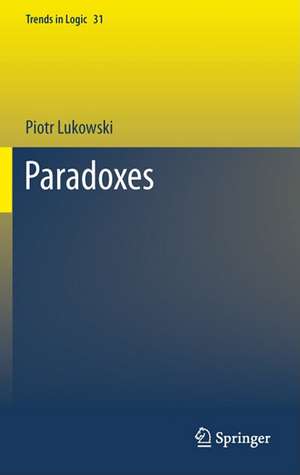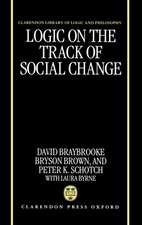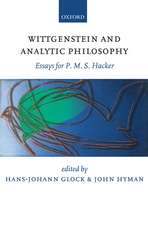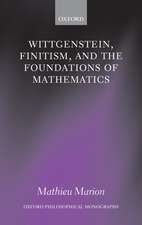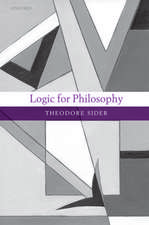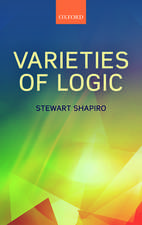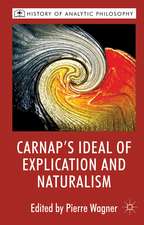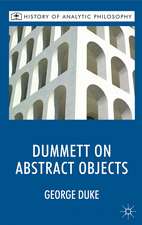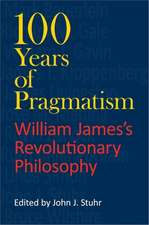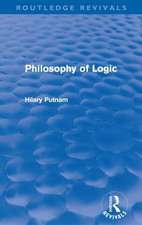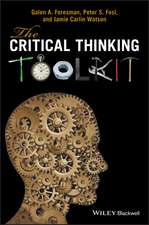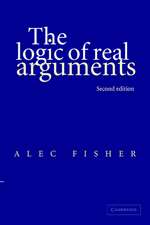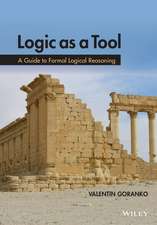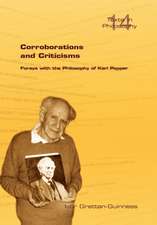Paradoxes: Trends in Logic, cartea 31
Autor Piotr Łukowski Traducere de Marek Gensleren Limba Engleză Hardback – 3 iun 2011
| Toate formatele și edițiile | Preț | Express |
|---|---|---|
| Paperback (1) | 635.80 lei 6-8 săpt. | |
| SPRINGER NETHERLANDS – 2 aug 2013 | 635.80 lei 6-8 săpt. | |
| Hardback (1) | 642.03 lei 6-8 săpt. | |
| SPRINGER NETHERLANDS – 3 iun 2011 | 642.03 lei 6-8 săpt. |
Din seria Trends in Logic
-
 Preț: 365.82 lei
Preț: 365.82 lei -
 Preț: 361.12 lei
Preț: 361.12 lei - 18%
 Preț: 1225.48 lei
Preț: 1225.48 lei - 18%
 Preț: 959.50 lei
Preț: 959.50 lei - 15%
 Preț: 646.94 lei
Preț: 646.94 lei - 15%
 Preț: 636.27 lei
Preț: 636.27 lei - 18%
 Preț: 1387.73 lei
Preț: 1387.73 lei - 15%
 Preț: 644.82 lei
Preț: 644.82 lei - 15%
 Preț: 646.75 lei
Preț: 646.75 lei - 15%
 Preț: 636.12 lei
Preț: 636.12 lei - 15%
 Preț: 647.40 lei
Preț: 647.40 lei - 15%
 Preț: 641.03 lei
Preț: 641.03 lei - 18%
 Preț: 733.03 lei
Preț: 733.03 lei -
 Preț: 385.47 lei
Preț: 385.47 lei - 18%
 Preț: 960.42 lei
Preț: 960.42 lei - 18%
 Preț: 956.18 lei
Preț: 956.18 lei - 18%
 Preț: 952.09 lei
Preț: 952.09 lei - 20%
 Preț: 1276.86 lei
Preț: 1276.86 lei - 18%
 Preț: 951.14 lei
Preț: 951.14 lei - 15%
 Preț: 643.00 lei
Preț: 643.00 lei - 15%
 Preț: 644.49 lei
Preț: 644.49 lei - 18%
 Preț: 1845.48 lei
Preț: 1845.48 lei - 18%
 Preț: 953.65 lei
Preț: 953.65 lei - 15%
 Preț: 635.47 lei
Preț: 635.47 lei - 18%
 Preț: 894.79 lei
Preț: 894.79 lei - 24%
 Preț: 1205.43 lei
Preț: 1205.43 lei - 15%
 Preț: 635.80 lei
Preț: 635.80 lei
Preț: 642.03 lei
Preț vechi: 755.33 lei
-15% Nou
Puncte Express: 963
Preț estimativ în valută:
122.86€ • 131.37$ • 102.43£
122.86€ • 131.37$ • 102.43£
Carte tipărită la comandă
Livrare economică 17 aprilie-01 mai
Preluare comenzi: 021 569.72.76
Specificații
ISBN-13: 9789400714755
ISBN-10: 9400714750
Pagini: 165
Ilustrații: VIII, 196 p.
Dimensiuni: 155 x 235 x 17 mm
Greutate: 0.46 kg
Ediția:2011
Editura: SPRINGER NETHERLANDS
Colecția Springer
Seria Trends in Logic
Locul publicării:Dordrecht, Netherlands
ISBN-10: 9400714750
Pagini: 165
Ilustrații: VIII, 196 p.
Dimensiuni: 155 x 235 x 17 mm
Greutate: 0.46 kg
Ediția:2011
Editura: SPRINGER NETHERLANDS
Colecția Springer
Seria Trends in Logic
Locul publicării:Dordrecht, Netherlands
Public țintă
ResearchCuprins
Preface.- Introduction.- 1. Sophisms and paralogisms (paradoxes of: horses, Newcomb, Fitch).- 2. Wrong intuition’s paradoxes (paradoxes of: common birthday, approximation, Stevenson’s bottle, Hempel, infinity).- 3. Paradoxes coming from ambiguity (paradoxes of Protagoras, Elektra, horn-headed man, the club without a name, God’s omnipotence, stone) .- 4. Paradoxes of self-reference (Möbius ribbon (band), Klein’s bottle, liar paradox, Buridan, barber, Richard, Berry, Grelling and Nelson, unexpected examination, crocodile).- 5. Ontological paradoxes.- 6. Epilogue.- Bibliography.- Subject index.- Name index.
Recenzii
From the reviews:
“Piotr Łukowski’s Paradoxes is an abridged, revised and translated version of a book written in Polish … . As a source of paradoxes and arguments related to them, the book is highly valuable. … Łukowski often develops his analyses carefully. In his book he not only gathers the paradoxes … but also presents a rather unified and interesting view on them. It is definitely a good read.” (Rafal Urbaniak, Studia Logica, Vol. 101, 2013)
“Piotr Łukowski’s Paradoxes is an abridged, revised and translated version of a book written in Polish … . As a source of paradoxes and arguments related to them, the book is highly valuable. … Łukowski often develops his analyses carefully. In his book he not only gathers the paradoxes … but also presents a rather unified and interesting view on them. It is definitely a good read.” (Rafal Urbaniak, Studia Logica, Vol. 101, 2013)
Notă biografică
Piotr Lukowski is the Head of the Department of Cognitive Science at the Institute of Psychology, University of Lodz. He was visiting scholar in the Imperial College of London (1993), at the University of Warwick in Coventry (1993), Japan Advanced Institute of Science and Technology (JAIST) (1995-97, Japan), Université de Nantes (1998-1999, France). In 1993-94 and between 1998 and 2007, Piotr Lukowski was the editor of the journal ''Bulletin of the Section of Logic''.
Textul de pe ultima copertă
The book is a monograph devoted to paradoxes of reasoning in the European tradition of philosophical logic. For each paradox, it analyses important attempts at its solution.The content is arranged according to the new classification of paradoxes presented by the author. The paradoxes discussed in the first three chapters can be called intra-linguistic ones. The first chapter analyzes paradoxes resulting from a clash between a logically correct reasoning and previously accepted opinions. The second one is devoted to paradoxes resulting from the error of ambiguity. The third one analyzes reasonings, whose paradoxical character originates in self-referent language constructions. Chapter four discusses paradoxes which are called ontological ones, whose existence results from a confrontation between the language description of reality and that reality itself.
The book is written in a clear way and does not require advanced knowledge of logic. It is addressed to readers with either humanist or scientific educational background and deals with important problems of language, cognition and reasoning in an accessible way.
The book is written in a clear way and does not require advanced knowledge of logic. It is addressed to readers with either humanist or scientific educational background and deals with important problems of language, cognition and reasoning in an accessible way.
Caracteristici
First book where the classification of paradoxes is based upon their essence, i.e. the problem being the core of the paradox First presentation of simple and natural solution of the Liar Paradox First publication of new and simple solutions of the following paradoxes: Protagoras, Newcomb, stone, crocodile, unexpected examination The book applies logical criteria in solving philosophical problems. The book shows the impossibility of adequate and precise expression of the world in language Presents new solutions of the most notorious logical problems, frequently called insoluble ones
